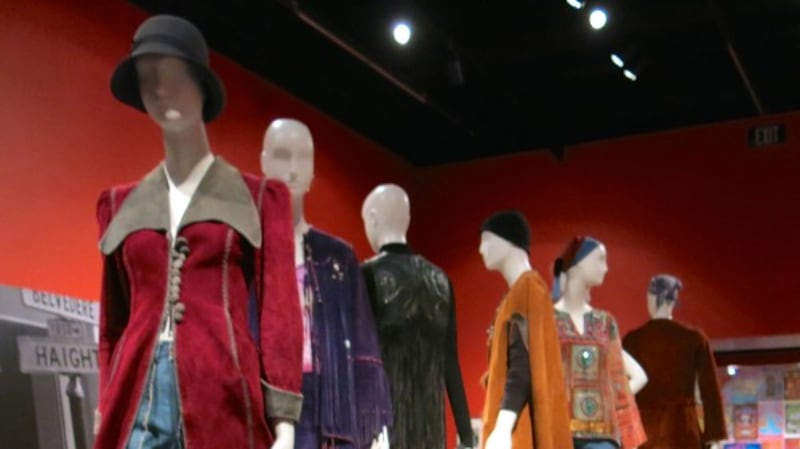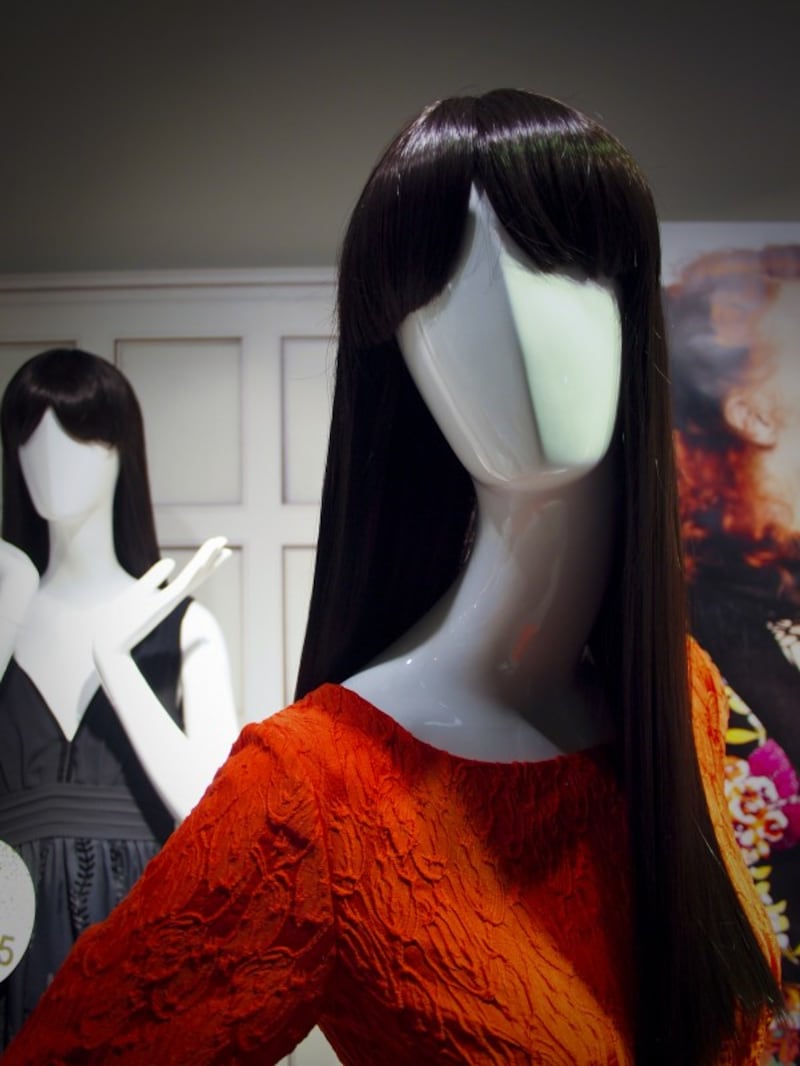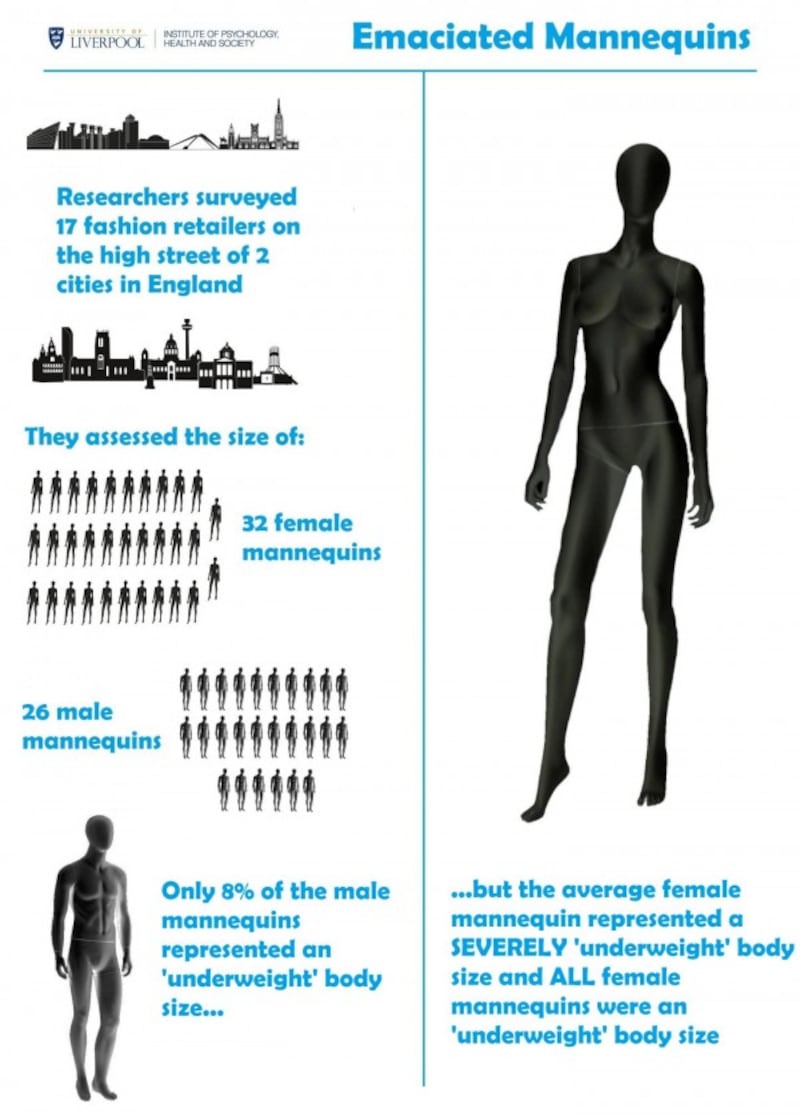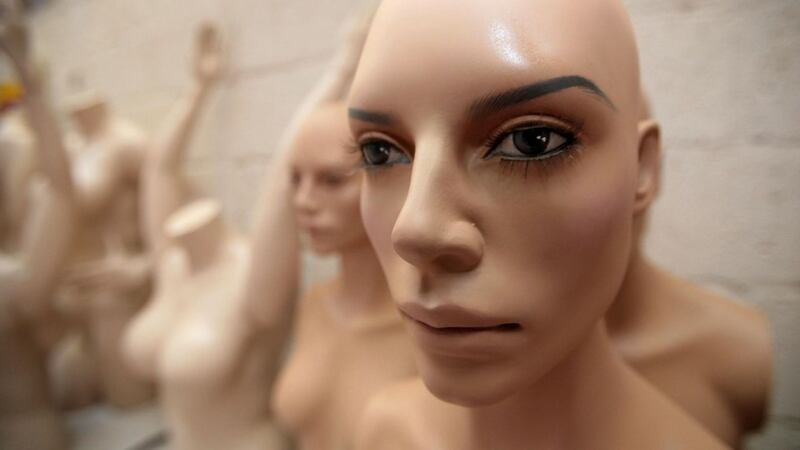Mannequins used in high-street fashion stores have been the subject of heated debates in the last few years, and now new research appears to cement the popular belief that the average female mannequin in UK stores is the size of a severely underweight woman.
According to the University of Liverpool’s Institute of Psychology, Health and Society, the mannequins used to advertise female fashion are too thin and may be promoting unrealistic body ideals.
Researchers assessed the body size of male and female mannequins in a survey of national fashion retailers on the high street in two UK cities.

They found that the average female mannequin body size was representative of a severely underweight woman – and all the female mannequins represented an underweight body size.
The average male mannequin body size was significantly larger than the average female mannequin, and only 8% of male mannequins represented an underweight body size.
The researchers concluded that the body size of mannequins used to advertise female fashion is unrealistic, and would be considered “medically unhealthy” in humans.

Dr Eric Robinson, who led the study, said: “We became interested in this topic after seeing some news reports about members of the general public noticing that some mannequins in fashion stores were disturbingly thin.
“Around the same time we had also read news coverage that fashion retailers had responded to this concern and adopted more appropriate sized mannequins, so it felt like an interesting research question to examine.
“Our survey of these two high streets in the UK produced consistent results; the body size of female mannequins represented that of extremely underweight human women.”

He added: “Because ultra-thin ideals encourage the development of body image problems in young people, we need to change the environment to reduce emphasis on the value of extreme thinness.
“We of course are not saying that altering the size of high-street fashion mannequins will on its own ‘solve’ body image problems.
“What we are instead saying is that presentation of ultra-thin female bodies is likely to reinforce inappropriate and unobtainable body ideals, so as a society we should be taking measures to stop this type of reinforcement.”
The study is published in The Journal Of Eating Disorders.








